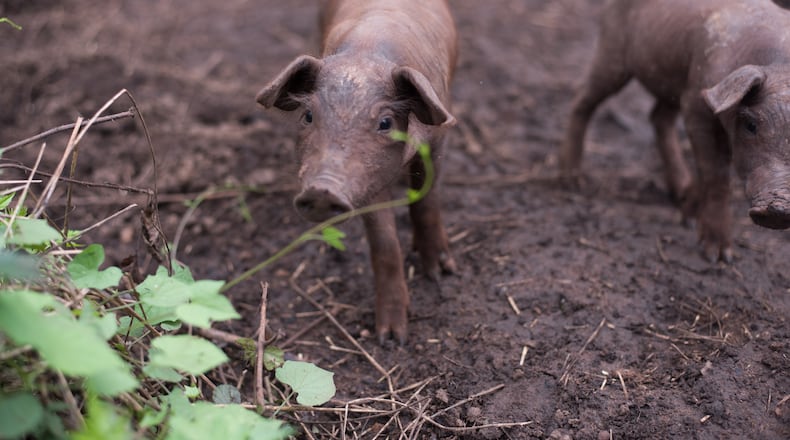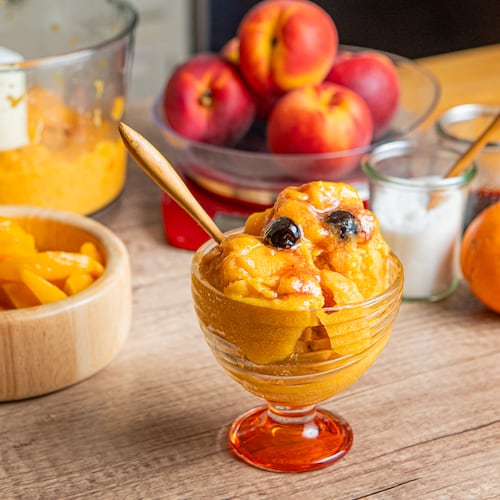The 500-year wait is over.
White Oak Pastures in Bluffton is partnering with Spanish private investment firm Cobacha to form Iberian Pastures, formed to import Iberian hogs from Spain into the U.S. for raising, breeding and slaughtering.
Here are 4 things to know about Iberian pork and why you should be excited about its return.
1. It's the first time Iberian pork will be raised in America in the past 500 years.
Prior to 2013, both the Spanish and U.S. governments forbade any exportation of the live animals. With a change in policy, father and son Jaime and Kurt Oriol of Cobacha approached Will Harris, owner of White Oak Pastures, to see about forming the joint venture.
"The farm is perfect, not only because of its land, its pastured animals and its success with national distribution, but because of the culture there and the family approach," Kurt Oriol said in an email.
That year, 26 gilts (young females) and six boars (young uncastrated males) were purchased and eventually made it to Bluffton after being born in Spain and flown from Amsterdam to New York City. Iberian Pastures currently has 300 pigs making up three generations of the breed in production.
2. Iberian hogs are different from their hog brethern.
Iberian pigs are desirable for three main reasons: their genetics, their diet and their versatility.
The genetic composition of Iberian pigs makes for the most efficient draining and marbling of fat.
Traditionally, Iberian pigs graze on acorns. Iberian Pastures pigs are raised on a diet of peanuts and pecans, putting a South Georgia twist on the Spanish tradition. Although the farm already had some pecan trees on its grounds, Harris also purchased a 30-acre pecan orchard, now a contiguous part of the farm’s 2,500 acres, in preparation for the pigs.
Iberian pigs feature several fresh meat cuts including the papada (jowl), lagarto (long strip of meat between chop and loin), presa (cut between top of shoulder and beginning of loin) and secreto (secret layer of meat within the lard on top front of belly), in addition to bone-in rib chops and bone-in loin chops.
Credit: Yvonne Zusel
Credit: Yvonne Zusel
3. White Oak personnel trained in Spain to learn how to raise, feed and slaughter the animals.
Brian Sapp, director of operations for White Oak Pastures and a master butcher, traveled to Badajoz, Spain, in 2015 to study the butchery of Iberian hogs hogs and spent time at slaughter and curing facility Señorío De Montanera. He also spent time on multiple Spanish farms to learn exactly how the animals are raised and fed.
4. Every part of the animal is being used
The farm is utilizing the whole animal, turning the Iberian pigs’ ears into chew toys for dogs, saving the fat to make lard and preparing broth with the bones.
Want to buy Iberian pork for your kitchen? The meat is available for purchase both at the farm and online.
MORE:
About the Author
The Latest
Featured




